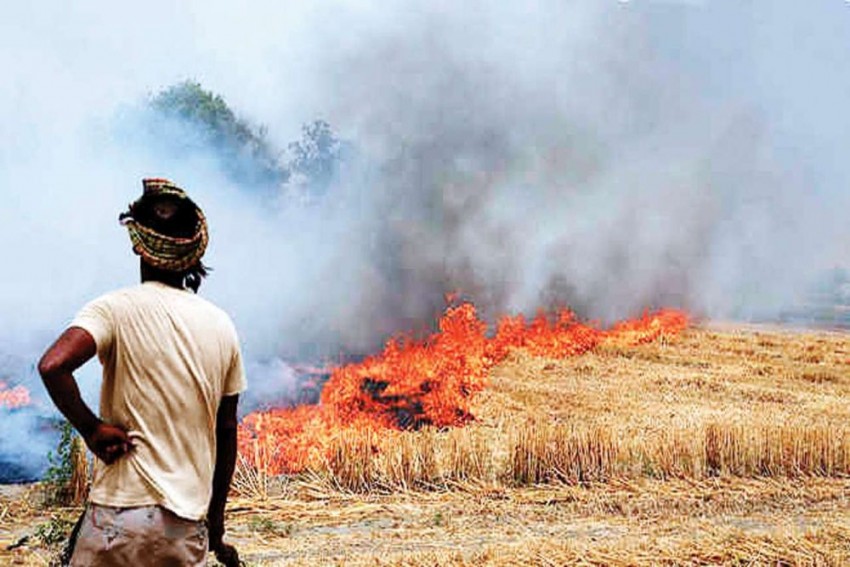
Patiala: As the harvesting season has reached its peak, the Punjab Government is grappling with the ways to effectively manage roughly 185 lakh tonnes of paddy straw being produced every year.
Currently, there are 42 CNG units, 14 biomass plants and an ethanol unit set up across the state, which are processing 30 lakh tonnes of paddy residue to generate fuel and energy. Punjab Pollution Control Board Chairman Adarshpal Vig is optimistic about the future. He said, “The present data suggests a dip of 50 per cent in farm fires as compared to previous year.”
Vig said from this year the state government had made it mandatory for the brick-kiln operators to replace at least 20 per cent coal with paddy-straw pellets for their fuel requirements. We are expecting a consumption of 5 lakh tonne of paddy residue by brick-kilns. Further, 7.4 lakh tonnes of pellets will be used by thermal plants. Besides, stubble is being used in the paper and cement industry also.
Punjab Agricultural University Vice-Chancellor Satbir Singh Gosal said, “Currently, 50 per cent of paddy residue is being processed through in situ and ex situ management. Besides special emphasis on incorporation of stubble in the soil, we need effective transportation to pick up stubble from the farms and storage godowns before it decomposes.”
Dr Mahesh Kumar Narang, Head, Department of Farm Machinery and Power Engineering, PAU, said nearly 1.17 lakh farm machinery, which include in situ machines like Super Seeder, Happy Seeder, Smart Seeder, Surface Seeder, mulcher, MB plough and ex situ machines like cutters, bailers and rackers had been sold among farmers and cooperative societies across the state and subsidies ranging from Rs 1 lakh to Rs 40,000 offered on the machinery. Besides, the process is on to offer subsidies on 24,000 farm machinery this year also.
Despite available alternatives, the small and marginal farmers, which constitute 34-40 per cent of the population associated with agriculture, are forced to set their fields on fire to prepare the land for sowing wheat crops as they can’t afford the cost of operating these machinery.
According to farmer leader Harmeet Singh Kadian, the small farmer neither has money, nor machines for transporting paddy residue to the processing units. Even the companies involved in collecting paddy residue avoid visiting farmers with small land holdings. This leaves these farmers with no alternative but to set the field on fire. Besides, application of incorporating crop residue in soil through in situ management costs Rs 4,500 in fuel charges.
398 farm fires in one day
The state today witnessed the highest single day count of farm fires of 398 so far in this season. With these fresh incidents, 1,260 paddy residue burning cases have been reported in Punjab in the past six days. Amritsar, Ferozepur and Patiala topped the districts with 79, 61 and 47 active farm fires incidents.